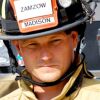Fire service firsts are unforgettable — your first call, your first fire call, even the first time you helped deliver a baby, which, amazingly, just happened for me after 20 years in the field.
We also remember our first crew, the individuals who introduced us to this challenging, yet undeniably incredible, profession. Just like randomly assigned college roommates, you never know who you’re going to work with on that first crew. For me, I was incredibly fortunate to find myself working with an exceptional team that was eager to share their knowledge and support.
My first assignment was at Engine Company 3, one of our rapid intervention team (RIT) engines. This role carried great pride and responsibility, as we trained extensively in fireground survival — we were the team our brother and sister firefighters depended on when the proverbial shit hit the fan on the fire scene.
| WEBINAR: Smarter specs: How to optimize fire apparatus design
What’s more, I was the only man on this highly skilled crew. The crew’s wealth of experience and dedication set a high bar, driving me to exceed expectations, especially in an environment where all-women crews were often scrutinized. This experience not only reinforced the importance of continuous training, but it also helped me cultivate skills and perspectives that have stayed with me throughout my career. Here are the key lessons I learned during my time on my first crew.
Be strong — and smart
Physical strength is crucial in firefighting, but my all-women crew taught me that technique is equally, if not more, important. Together, we ensured that we were all physically prepared to meet the demands of our duties. However, they also emphasized that proper form can often outweigh raw strength, preserving joints and bodies over the long haul in this physically demanding career.
There were many instances when I found myself forcing movements, muscling ladders or fighting against advancing a heavy hoseline, only to be humbly shown a more efficient technique that made the tasks easier and more effective. This invaluable lesson has shaped my approach as a firefighter and officer. I continually emphasize to my crews the importance of leveraging strength with smart techniques, ensuring we protect our bodies while performing effectively.
This is a team sport
Firefighting and EMS are true team sports, demanding collaboration and support on every call. As a new probie fresh out of the academy, you’ll be tasked with carrying heavy equipment and taking on the more strenuous duties of the crew. While my crew encouraged me to challenge myself and become stronger and proficient in my skills during training, when on the fireground, however, it was ingrained in me to utilize extra hands whenever possible. If I had to carry a ladder to the charlie side of a building, it was easier and more efficient to do this with another member of my crew. Bottom line: Ask for help when you need it, and give help when you perceive someone else could use it.
This teamwork mindset fostered a strong camaraderie among the crew; we understood that everyone was watching us, and we made it a priority to help each other. I’ve carried this mantra forward into my own crews — to prioritize teamwork and support one another whenever possible, regardless of the time on the job.
Breaking stereotypes
During my time serving on an otherwise all-women fire crew sometimes prompted questions from other crews like, “Is your estrogen level a little high?” While most of the teasing was harmless, I sometimes sensed negativity beneath the surface. So no matter what judgment I felt from outsiders, I always responded positively: I loved being at Firehouse #3. We trained rigorously, and the atmosphere was supportive and pleasant. Plus, I had my own bathroom!
I embraced my experience that challenged traditional gender roles and highlighted the importance of skill over gender. I experienced firsthand how diverse perspectives fostered better problem-solving and adaptability both on the fireground and in the firehouse.
Better Every Shift
Being part of such a strong crew ignited a fierce motivation within me to improve myself daily, driven by the desire not to let my teammates down. I felt a profound sense of responsibility; if I fell short, it would reflect on the collective effort of the group rather than just my individual shortcomings. This mindset pushed me to engage daily in activities that enhanced my skills, and it was inspiring to see my crew embody the same dedication to growth.
Surrounded by such a supportive and ambitious environment felt entirely natural, and it’s a mentality I carry with me to this day — and one we talk about on the Better Every Shift podcast. Whether it was diving into policy manuals, becoming more adept with our gear, understanding the intricacies of building construction and territory, or honing our communication skills, we continuously elevated one another as a crew, fostering an atmosphere of shared commitment and excellence.
As I continue to serve, I remain grounded in the values they instilled in me, championing a culture of teamwork and mutual support, a reminder that we are always stronger together, and success is a shared journey, accomplished one shift at a time.





